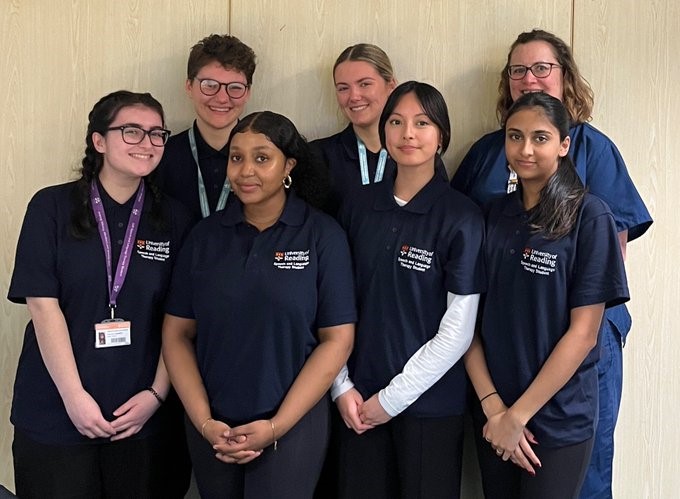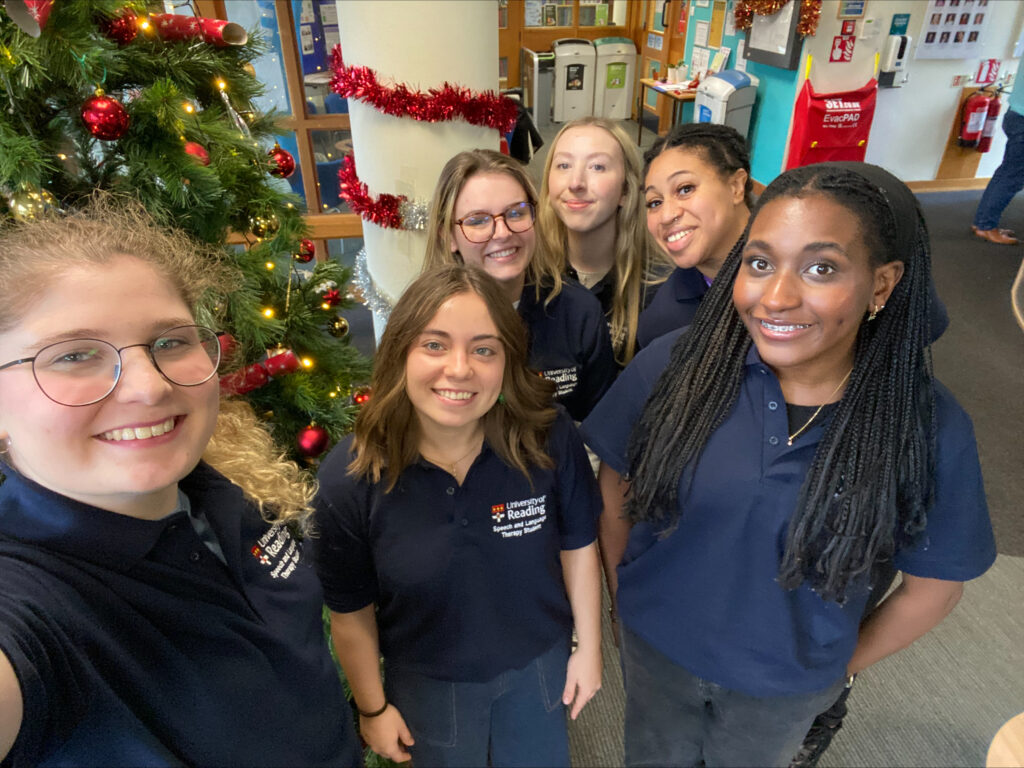Speech & Language Therapy Practice Placements

Welcome to our Practice Placements website. Thank you for your involvement in the placement education of the MSci and MSc Speech and Language Therapy students from the University of Reading. As we continue to develop this website, please contact Allie Biddle with suggestions of things to include.
“All students will be made to feel welcome on placements and will be treated with fairness and respect, irrespective of race, gender, gender reassignment, marriage and civil partnership, health status, disability, age, sexual orientation, religion and belief. We want placement experiences to be safe and positive for students, staff and clients. If you have any placement adjustments related to health or disability, or concerns about the placement, please discuss these with your practice educator at the earliest opportunity. Any information disclosed will be treated in strictest confidence. We look forward to having you on placement.” (Clinical Placement Providers 2024)
What our student have to say about practice placement experiences 2023-24:
“My PE was amazing. She gave me so many opportunities to achieve my learning outcomes but never pressured me into doing anything I wasn’t comfortable with. She frequently checked in with me to see if there was anything I would like to do that I hadn’t yet had the opportunity to do.”
“[She] was incredibly kind and friendly and allowed me to ask many questions. If I made a mistake or didn’t know something I didn’t feel stupid admitting it and I was able to develop my self-confidence massively thanks to this. The other staff I interacted with were also amazing to work with.”
“H was brilliant! She frequently referred to the documents and advice from the university regarding the requirement of the placement. She also frequently considered my own placement aims to ensure I was learning what I wanted to.”
Placement provider feedback about our students 2023-24:
“From the outset, M was engaged and answering questions appropriately showing great insight into the setting and client group but also a willingness to be vulnerable admitting she was both “excited and nervous” about the placement. Feedback from the therapists who had dealings with them across the morning were also extremely positive with the therapists commenting how engaged she had been in our team.”
“J was a delightful student to have this spring. He has been positive throughout the placement which has times has been challenging.”
“Universally positive feedback from all colleagues who have spent time with him during the placement, it has been a pleasure to support C in his professional learning and development.”
“The children M worked with responded really well to her and she developed a lovely rapport with a child who was reluctant to speak and enabled the child to communicate successfully within the sessions.”
“A has been an excellent student, and it has been absolute pleasure to work with her. I wish her the best of luck for the remainder of the course and in her future placements as she deserves the best and will be an asset wherever she chooses to work.”

Conversation Cafe
The conversation café is speech and language therapy students and people living with aphasia coming together for a regular informal chat. The main idea is that everybody gets to practice having a conversation in a safe and relaxed environment.
Find out more about the Conversation Cafe here.
Book Club
The book club is for people living with aphasia. One of the things people miss most after a stroke is the ability to enjoy reading. The aim of the club is not to improve our reading skills but to help you enjoy literature again and give you the chance to talk about what you have read in a supported and friendly environment.
Find out more about the Book Club for adults with Aphasia here.
Befriending
Working alongside Age UK, our students are matched with an older person to talk to on a regular basis to help reduce isolation and combat loneliness.
Child Development Assignment (CDA)
At the start of their training, each speech and language therapy student has to observe a toddler in a home setting. This helps them to understand child development, and to practice talking with parents. This is excellent preparation for later in their training, when the students will meet children in clinical situations.
